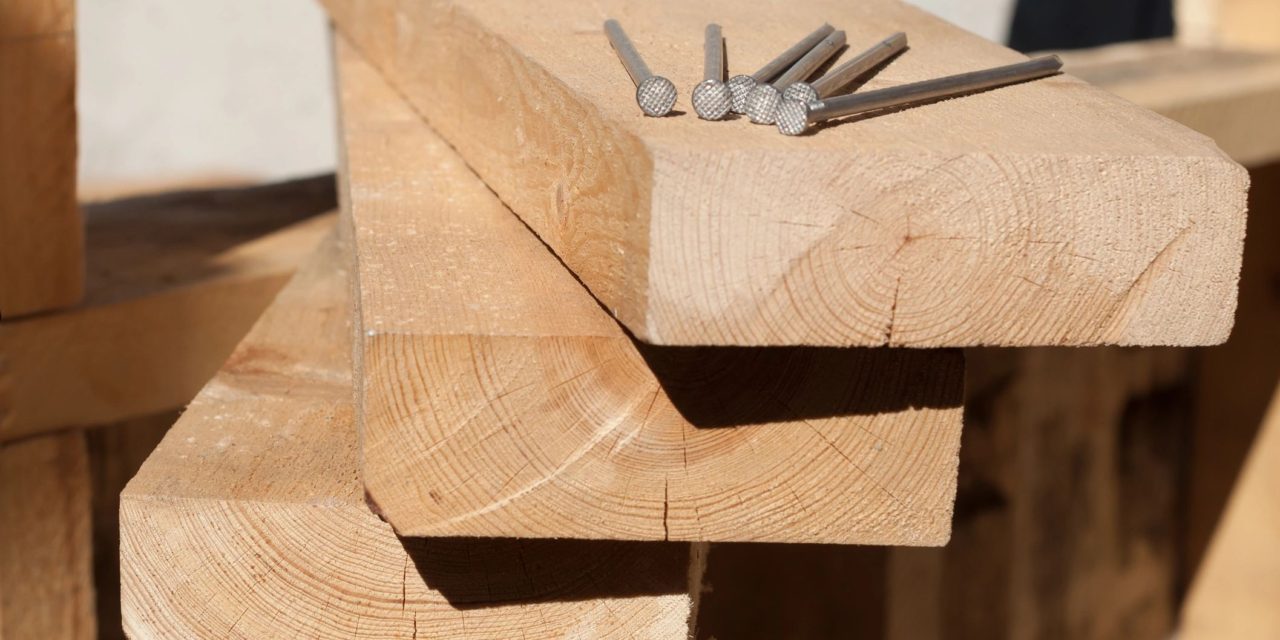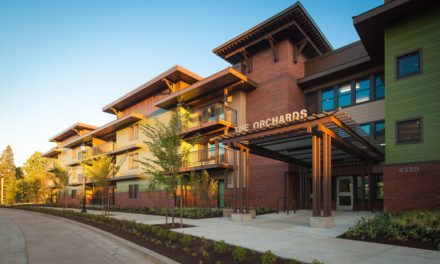New Guide highlights versatility of wood
WASHINGTON, May 30, 2017 /PRNewswire/ — The Binational Softwood Lumber Council has released the Nail-Laminated Timber (NLT) U.S. Design and Construction Guide, a first-of-its-kind manual for the U.S. design and construction community. The NLT Guide was conceived and prepared by skilled practitioners who are each dedicated to advancing high-quality timber construction across industries, typologies and geographies. Available for free download at reThinkWood.com, the guide provides direction to ensure safe, predictable and economical use of NLT, and offers practical strategies and guidance, including lessons learned from real-life projects.
Consistent with current codes and standards, including the 2015 International Building Code, this Guide focuses on design and construction considerations for horizontal NLT applications pertaining to U.S. construction practice and standards. Unlike other mass timber products, NLT does not require a unique manufacturing facility and can be fabricated with local dimension lumber for use in applications across sectors and building types.
“Nail-laminated timber is a cost-effective solution for those looking to leverage the economic and environmental benefits of mass timber construction. It offers tremendous design flexibility and is readily accessible throughout the country thanks to availability of raw materials and its ease of fabrication. Equally important, NLT is already listed in the code as Heavy Timber so it can be incorporated into a project without the need for an alternative solution application,” said Cees de Jager, General Manager of the Binational Softwood Lumber Council. “NLT is also a significant growth opportunity for our industry and, therefore, we are proud to have funded this important resource.”
While NLT has been incorporated into U.S. building code for decades, available resources are dated and have been focused on prescriptive, rather than engineered applications,” said Rebecca Holt, of Perkins+Will. “This guide serves as a supplement to best practices and standards in wood design and construction, and is meant to offer guidance specific to the application of NLT for the range of disciplines engaged in both design and construction. It includes illustrated and visual references of real-life applications to not only transfer knowledge, but to inspire new projects.”
“From an engineering perspective, mass timber technologies like nail-laminated timber signify an exciting shift in the way we think about building,” said Tanya Luthi of the New York office of Fast+Epp. “There’s an eagerness among architects that I haven’t seen for a number of years, and structural engineers like myself can use a resource like this to help bring the designers’ vision to life in a safe, economical way.”
The U.S. Nail-Laminated Timber (NLT) Design and Construction Guide was made possible through the leadership and support from the Binational Softwood Lumber Council, as well as expertise from Perkins+Will, Fast+Epp, StructureCraft, Seagate Structures Ltd., RDH Building Science, Holmes Fire, GHL Consultants Ltd., American Wood Council and WoodWorks.
Additional mass timber and wood building resources are available at reThinkWood.com and the reThink Wood Research Library.
About Binational Softwood Lumber Council
The Binational Softwood Lumber Council (BSLC), a nonprofit organization, was established in 2006 by the Canadian and U.S. governments. The BSLC’s effort includes initiatives that bring together expertise from various disciplines to promote and increase the use of North America softwood lumber products in residential and non-residential construction in established and emerging market segments. For more information, visit softwoodlumber.org.
About reThink Wood
reThink Wood represents North America’s softwood lumber industry. We share a passion for wood and the forests it comes from. Our goal is to generate awareness and understanding of wood’s advantages in the built environment. Join the reThink Wood community to make a difference for the future. Be part of the conversation to “rethink” wood use, address misperceptions and enhance awareness of wood’s benefits and choices. Learn more at reThinkWood.com.





